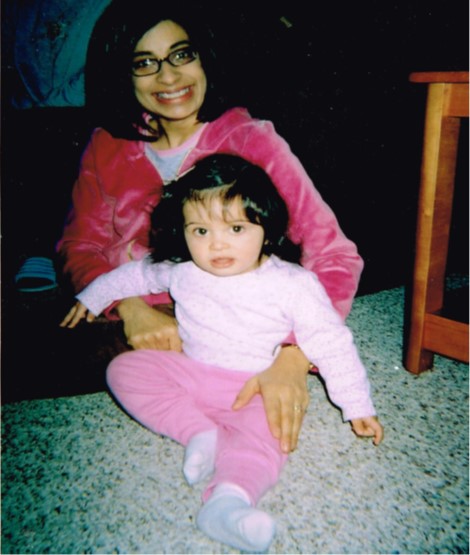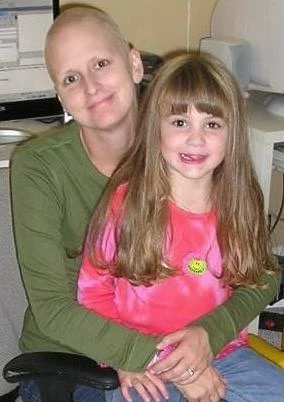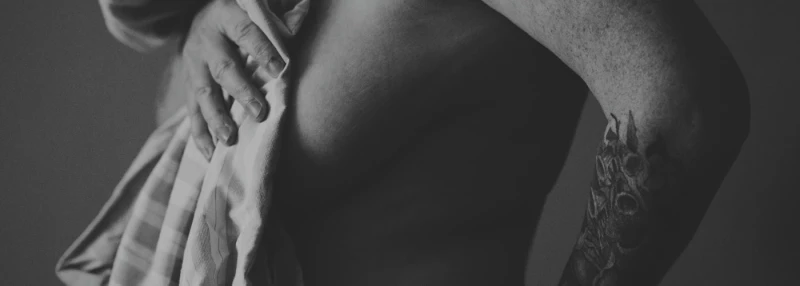For many mothers, one of the first reactions to being diagnosed with breast cancer is “What about my kids?” There is no one right way to help children cope because everyone is different. YSC has amazing staff who were mothers of young children when they were first diagnosed with breast cancer. We’ve asked a few of them to share some useful tips and offer advice from their own personal experiences.
Nicole Taylor, Regional Field Manager (West), diagnosed at 34

My children were 2 and 4 when I was diagnosed with breast cancer.
- Kids are resilient. One of the best pieces of advice that another young survivor shared with me when I was first diagnosed was that kids are resilient, more than we can even imagine. It’s okay if they watch a little more Blue’s Clues or have PB&J for lunch a little too often. Kids will still thrive and grow into wonderful human beings!
- Let things go. Spend time with your kids and let the dishes and laundry pile up. It’ll be there tomorrow. Or better yet, take one of your friends and family up on their offer to help. They can hang out with the kids or assist with daily chores that can drain your energy and eat up precious family time. Organizational programs like lotsahelpinghands are helpful to add chores, rides to school, sports and doctor appointments to allow others to help you.
- Be open with your kids. I was very open with my kids about cancer. I lost my mom to a brain tumor at a young age, so I understood what's going through the mind of a 5 year old when they learn “mom is sick.” Cancer is a very abstract thing, so depending on the age of your child, they will have different questions and levels of understanding. Honestly, they may not want to know the science of breast cancer, but may want to know if you’re going to be okay. "Are you going to die from cancer?" That is absolutely the hardest question to answer and one that is asked often, usually over cheerios at the breakfast table. My consistent answer every time was “I did everything in my power to make sure my cancer doesn’t come back. Right now, there is no evidence of disease (NED) or cancer in my body. My promise to you is if that ever changes, I will tell you the truth and what it means. For now, we will move forward with living and enjoying all of the beauty of life. The ups, downs and in betweens.”
Michelle Esser, Senior Program Manager of Research and Advocacy, diagnosed at 37

When I was diagnosed with breast cancer, my son was 3 and my daughter was 6.
- Remember, kids are super smart. They can pick-up on emotions and that something is “up.” Even if you think you’re successfully keeping something about your diagnosis “quiet” or a “secret,” you’re not. Kids just know! Keep them informed as much as possible (age appropriate information), so they don’t have to worry about what’s going on or invent an explanation that could be worse than the truth.
- Have backup the first time you speak with them. When you tell your kids about your diagnosis, have someone there with you if possible. They can be your “back-up” in case you find yourself at a loss for words or become emotional.
- Let them know about their daily schedule. Make sure the kids know how your diagnosis and treatment will affect their day-to-day life. Will they still be able to play with the neighbor kids? Will someone else be in your house helping to look after them?
- Be prepared for tough questions! Kids, especially young kids, don’t have filters. Think of the worst possible thing they could ask you and be prepared. My 6-year old daughter asked me who would take care of her when I died – and I had never mentioned dying.
- Be open to future discussions. Let them know it is okay to come back to you with questions.
- Take cues for your kids. If you’ll lose your hair due to treatment, take cues from your kids about how they want to handle this and whether they want to see you bald. Some kids are fine and think it is fun to help shave mom’s head. Others, like mine, were terrified and did not want to see me without something covering my head. I tried to respect that as much as I could.
Medha Sutliff, Senior Regional Field Manager (Midwest), diagnosed at 28 and 37

My first breast cancer diagnosis was at 28, right after I got married. In March 2005, I received my second breast cancer diagnosis at 37. At that time I had four kids, ages 3 months, 5, 9 and 11 years old.
- Don't try to go it alone! This is the #1 tip I can give to young mothers facing breast cancer. Navigating life as a mom can be challenging enough, but then a cancer diagnosis and treatment can make it overwhelming. It’s important to seek out resources and accept help!
- Get resources on how to talk to your kids. One big area I needed help with was how to talk to my kids about cancer. There are publications and books that can help you find the right words. Two good places to start are the American Cancer Society and CancerCare. There are also mom blogs and other websites that provide information, one which I remember looking at was Mothers With Cancer. I also recommend talking to other moms who have had a cancer diagnosis.
- Attend support groups for families. Ask your nurse navigator if there is a cancer support group for families with young kids. It is worth attending! Some medical centers or cancer support organizations have support groups just for kids who have a parent who has been diagnosed.
- Set up a CaringBridge or similar site. It was exhausting for me to keep responding to texts and calls from people inquiring how I was doing. You don't need to post updates on Facebook or social media for the world to see, but you can easily setup a secure page on CaringBridge where you or a designated person can post updates. Plus you can read everyone’s well wishes.
- Get help with meals. MealTrain is another great site to help organize those who want to bring meals.
- Set up a "busy box." This was great for my 5 year old and 6 month old. This is just a box with some new fun toys and games that you can bring out when you’re tired or not feeling well. It’s something your friends can help you put together. Keep this box only for those special times when you need them busy so that it gets the kids interest when you need it to.
***
RESOURCES
Find more resources and tips for children on YSC's website. Connecting with other mothers who have been affected by breast cancer is also helpful, whether it's through the YSC Community Forum, on the Private Facebook Group, or in person at a Face 2 Face group.
We're here to help, so let us know how we can assist you and your family. Find your YSC Regional Field Manager, your go-to person for resources and support in your area.





